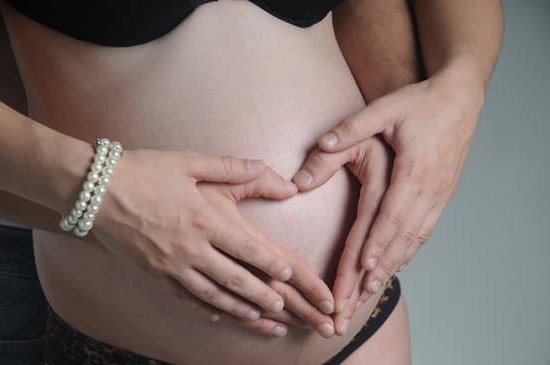When it comes to taking a pregnancy test, many factors can influence the accuracy of the results. One common question that arises is, “Can alcohol affect a pregnancy test?” Pregnancy tests work by detecting the presence of the hCG hormone in urine, which is only produced during pregnancy. While alcohol consumption can potentially impact certain bodily functions, studies have shown that it does not interfere with the accuracy of pregnancy tests.
Understanding how alcohol and pregnancy tests interact is essential for individuals seeking reliable results. Despite concerns about substances like alcohol affecting test outcomes, research has found that alcohol consumption does not lead to false positives or negatives on pregnancy tests. Therefore, individuals can rest assured that enjoying a glass of wine or beer should not sway the results of their pregnancy test.
While alcohol may not significantly impact pregnancy test results, it’s crucial to consider other factors that can affect the accuracy of these tests. Medications, medical conditions, and even testing too early or too late in the menstrual cycle can all influence the outcome of a pregnancy test. By understanding these variables and staying informed, individuals can ensure they are taking their tests under optimal conditions to receive accurate results.
Understanding Alcohol and Pregnancy Tests
When it comes to taking a pregnancy test, many factors can come into play that may influence the accuracy of the results. One common question that arises is whether alcohol consumption can affect a pregnancy test. While some people may believe that alcohol could interfere with the test results, in reality, alcohol does not have any significant impact on the outcome of a pregnancy test.
The science behind pregnancy tests is based on detecting the presence of human chorionic gonadotropin (hCG) hormone in urine. This hormone is produced by the placenta shortly after a fertilized egg attaches to the uterine lining.
The hCG hormone levels increase rapidly in early pregnancy, and this is what pregnancy tests are designed to detect. Alcohol consumption, however, does not alter or mask the presence of hCG in urine, which means that it does not affect the accuracy of a pregnancy test.
While there are certain medications and medical conditions that can potentially skew pregnancy test results, alcohol is not one of them. The trustworthiness of a pregnancy test result relies mostly on following the instructions provided with the test kit and taking it at the recommended time after a missed period.
So, if you have been concerned about how alcohol consumption might affect your ability to take an accurate pregnancy test, rest assured that you can still rely on its results regardless of having consumed alcohol.
Factors That Can Affect Pregnancy Test Results
Medications and Medical Conditions
Various medications and certain medical conditions can potentially impact the accuracy of pregnancy tests. Medications that contain hCG, such as some fertility drugs, can produce false-positive results. Additionally, medical conditions like ovarian cysts or certain types of cancers can also lead to false-positive pregnancy test results. It is crucial for individuals to be aware of any medications they are taking and their medical history when interpreting the results of a pregnancy test.
Comparison With Alcohol Consumption
In contrast to medications and medical conditions, alcohol consumption typically does not affect the results of a pregnancy test. The presence of alcohol in the body does not interfere with the mechanism by which pregnancy tests detect hCG levels in urine.
Therefore, individuals who have consumed alcohol before taking a pregnancy test should not worry about it affecting the accuracy of the results. However, it is essential to keep in mind that excessive alcohol consumption can have detrimental effects on both fertility and pregnancy outcomes.
Consulting Healthcare Providers
If there are concerns about factors that could potentially impact the accuracy of a pregnancy test, including medications, medical conditions, or alcohol consumption, it is advisable to consult healthcare providers for guidance. Healthcare professionals can provide personalized advice based on individual circumstances and offer clarity on how specific factors may influence pregnancy test results. Seeking professional help can help alleviate any uncertainties and ensure accurate interpretation of pregnancy test outcomes.
Myth Busting
Alcohol consumption is a common concern for women who may be taking a pregnancy test. Many individuals wonder whether drinking alcohol can affect the accuracy of a pregnancy test. The answer to this question is no, alcohol does not interfere with the results of a pregnancy test. Pregnancy tests work by detecting the presence of human chorionic gonadotropin (hCG) hormone in urine or blood, which is produced by the placenta after implantation occurs.
Debunking Common Myths
There are several myths surrounding alcohol consumption and its impact on pregnancy test results. One common misconception is that consuming alcohol before taking a pregnancy test can alter the result. However, this is not true as alcohol ingestion does not influence hCG levels or interfere with the detection of this hormone in pregnancy tests. It’s essential to rely on scientific evidence rather than myths and misconceptions when it comes to matters affecting reproductive health.
Evidence-Based Information
Scientific research supports the claim that alcohol does not affect the accuracy of pregnancy tests. While excessive alcohol consumption during pregnancy can have detrimental effects on fetal development, it does not impact the reliability of home pregnancy tests.
It’s crucial for individuals to base their decisions on accurate information and consult healthcare professionals for guidance on both pregnancy testing and alcohol use during conception or gestation. Avoiding misinformation and seeking reputable sources can help alleviate unnecessary worries related to potential interference between alcohol consumption and pregnancy test outcomes.
Tips for Accurate Pregnancy Testing
Alcohol consumption is a common concern for individuals taking pregnancy tests, as it raises questions about its potential effects on the accuracy of the results. However, despite some misconceptions, alcohol generally does not have a direct impact on pregnancy tests. Home pregnancy tests work by detecting the presence of the human chorionic gonadotropin (hCG) hormone in urine, which is produced during pregnancy. The chemical composition of alcohol does not interfere with the hCG detection process in these tests.
While alcohol itself may not affect the accuracy of pregnancy tests, there are other factors that can influence the results. Medications, medical conditions, or improper test usage are more likely to cause false results than alcohol consumption. It is essential for individuals to follow the instructions provided with the pregnancy test carefully to ensure reliable results. Inaccurate readings can lead to unnecessary stress or confusion about one’s pregnancy status.
To ensure accurate pregnancy testing, it is advisable to take the test in the morning when hCG levels tend to be more concentrated in urine. Additionally, waiting until a missed period before testing can also increase the sensitivity of the results. If there are concerns about alcohol consumption affecting a pregnancy test or if uncertain about interpreting the results correctly, seeking guidance from healthcare professionals is recommended for clarity and peace of mind.
| Factors Affecting Pregnancy Test Results | Impact on Accuracy |
|---|---|
| Alcohol Consumption | No direct effect |
| Medications | Potential interference |
| Medical Conditions | Possible false readings |
Alcohol Consumption During Pregnancy
When it comes to alcohol consumption during pregnancy, the general consensus among healthcare professionals is clear – it’s best to avoid alcohol altogether. This recommendation stems from the potential risks associated with drinking alcohol while pregnant. The developing fetus can be adversely affected by alcohol, leading to a range of health issues known as Fetal Alcohol Spectrum Disorders (FASDs). These disorders can cause physical, behavioral, and cognitive challenges for children throughout their lives.
Listed below are some key points regarding alcohol consumption during pregnancy:
- Even moderate alcohol consumption during pregnancy can have harmful effects on the baby’s development.
- There is no safe amount of alcohol that has been identified for pregnant women.
- Alcohol crosses the placenta and reaches the fetus, potentially interfering with its growth and causing irreversible damage.
It’s essential for expectant mothers to prioritize their baby’s health and well-being by refraining from consuming alcohol throughout pregnancy. By making this choice, women can reduce the risk of FASDs and give their child the best possible start in life.
Remember, when in doubt about what is safe during pregnancy, always consult with your healthcare provider for personalized guidance and support. It’s better to err on the side of caution when it comes to taking care of yourself and your baby.
Importance of Seeking Professional Advice
Alcohol consumption during pregnancy can be a concerning topic for many expectant mothers, especially when it comes to its potential impact on pregnancy test results. However, it is essential to understand that alcohol does not interfere with the accuracy of pregnancy tests.
These tests work by detecting the presence of human chorionic gonadotropin (hCG) hormone in urine, which is produced during early pregnancy. Alcohol consumption does not affect the production or detection of hCG in the body, so it will not alter the results of a pregnancy test.
It is important for women to be aware of factors that can affect pregnancy test results aside from alcohol consumption. These factors can include certain medications and medical conditions that may impact hCG levels or interfere with the testing process. While alcohol itself does not influence the outcome of a pregnancy test, it is crucial to consider all potential variables that could affect accurate results when taking a test.
When in doubt about the accuracy of a pregnancy test result or how alcohol consumption may impact prenatal health, seeking professional advice is key. Healthcare providers can offer personalized guidance and information based on individual circumstances. Consulting with a healthcare provider ensures that pregnant women receive accurate information regarding both alcohol consumption during pregnancy and reliable pregnancy testing methods to promote a safe and healthy prenatal experience.
Conclusion
In conclusion, while there are various factors that can potentially affect the results of a pregnancy test, it is crucial to highlight that alcohol consumption generally does not interfere with the accuracy of these tests. Despite some misconceptions, scientific evidence supports the notion that having a few drinks should not impact the reliability of a pregnancy test. However, it is essential to remember that excessive alcohol intake can have detrimental effects on both pregnancy and overall health.
It is important for individuals to understand the risks associated with consuming alcohol during pregnancy. The potential harm it can cause to the developing fetus underscores the significance of abstaining from alcohol when trying to conceive or already pregnant. Responsible behavior during this critical period is paramount, and seeking professional advice from healthcare providers is highly recommended for accurate information regarding both pregnancy testing and alcohol consumption.
Overall, while it is essential to be informed about various factors that can influence pregnancy test results, including alcohol consumption, it is equally vital to prioritize the well-being of both potential mothers and unborn children. By following guidelines for accurate testing and avoiding risky behaviors such as excessive drinking during pregnancy, individuals can take proactive steps towards ensuring a healthy outcome for themselves and their future families. Remember, responsible decisions today can positively impact tomorrow’s joyous moments.
Frequently Asked Questions
Can Drinking Affect a Pregnancy Test?
Drinking alcohol should not affect the result of a pregnancy test. Pregnancy tests detect the presence of human chorionic gonadotropin (hCG) in urine, which is a hormone produced by the placenta during pregnancy. Alcohol consumption does not interfere with this process.
Can Drinking Alcohol Affect Early Pregnancy?
Drinking alcohol during early pregnancy can have harmful effects on the developing fetus. It is recommended to avoid alcohol completely when trying to conceive and during pregnancy, as it has been linked to an increased risk of birth defects, developmental delays, and other complications.
What Can Cause a False Negative Pregnancy Test?
Several factors can cause a false negative result on a pregnancy test. Taking the test too early before there is enough hCG in the urine, using a diluted sample of urine, or not following the instructions properly can all lead to inaccurate results.
It is essential to carefully read and adhere to the instructions provided with the test for accurate results.

Welcome to my fertility blog. This is a space where I will be sharing my experiences as I navigate through the world of fertility treatments, as well as provide information and resources about fertility and pregnancy.





